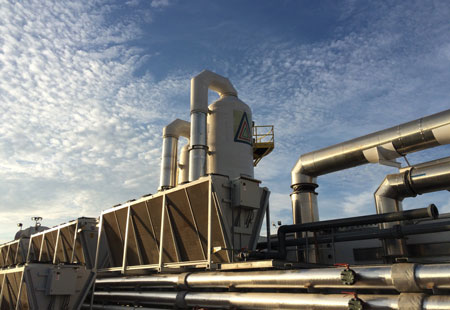Water and wastewater treatment have become critical components of modern society. Eco-friendly filtration systems are at the forefront of this effort. They help ensure that water is treated efficiently while minimising environmental impact.
Industrial coal is essential in these filtration systems, providing a robust and effective means of removing contaminants. It can contribute to eco-friendly solutions when used correctly. This article explores how it powers eco-friendly filtration systems.
The Role of Coal in Water Filtration Systems
Coal, particularly in its activated form, is a highly effective filtration material. Activated carbon, derived from it, is produced by heating coal at high temperatures, creating a highly porous structure that is excellent at adsorbing contaminants. This porosity enables activated coal to trap many impurities, including chemicals, organic matter, and harmful pathogens.
Activated carbon from industrialised coal is commonly used in domestic and industrial systems. Its ability to remove contaminants like chlorine, volatile organic compounds (VOCs), and heavy metals from water makes it a preferred choice in technologies. When applied in eco-friendly setups, coal-based filters enhance the overall purification process.
Activated Carbon and Environmental Benefits
While coal is often associated with pollution and carbon emissions, its use in filtration offers significant environmental benefits. Activated carbon is a renewable resource that can be regenerated and reused after saturation. This regeneration process involves cleaning the carbon through a high-temperature process, restoring its absorptive properties.
Moreover, using industrial coal in these setups reduces the need for harsh chemicals in water treatment. Traditional methods often rely on chemical additives to neutralise contaminants. By contrast, activated carbon filters rely on physical adsorption rather than chemical reactions, which means fewer chemicals are introduced into the environment.
Efficiency and Sustainability
One of the primary reasons for its widespread use in these setups is its exceptional efficiency in removing impurities. Activated carbon has a large surface area relative to its volume, which allows it to capture a wide range of contaminants. This capability is particularly important in eco-friendly setups, where the goal is to achieve high levels of water purity with minimal energy and resource consumption.
It helps remove organic and inorganic contaminants from wastewater, including pharmaceutical residues, pesticides, and industrial chemicals. If not properly treated, these substances can be harmful to human health and aquatic ecosystems. Coal-based filters effectively trap these contaminants.
Cost-Effectiveness of Coal-Based Filtration Setups
In addition to its environmental benefits, it is a cost-effective solution for water filtration. Compared to other filtration materials, such as synthetic polymers or advanced membranes, coal is relatively inexpensive to produce and regenerate. This affordability makes it an attractive option for municipalities, industries, and households.
Activated carbon filters’ long lifespan also contributes to their cost-effectiveness. These filters can be regenerated multiple times before they need to be replaced, reducing the overall cost of maintaining a filtration system. This is particularly important in large-scale industrial and municipal water treatment plants, where the cost of filtration materials can significantly impact the overall budget.
Applications in Eco-Friendly Systems
It is used in various eco-friendly filtration systems, from residential drinking water filters to large-scale municipal wastewater treatment plants. In residential systems, activated carbon filters are commonly found in water pitchers, under-sink units, and whole-house filtration systems. They provide clean drinking water free from harmful contaminants.
In industrial and municipal applications, coal-based filtration systems are essential for efficiently treating large volumes of water. These systems are for drinking water, treating wastewater from industrial processes, and even desalinating seawater. Activated carbon’s versatility helps meet the growing global demand for clean water while minimising environmental impact.
Industrial coal is crucial in eco-friendly water and wastewater filtration systems, particularly in activated carbon form. By harnessing the power sustainably, water treatment processes can continue to evolve. This will help ensure safe, clean water for all while minimising the ecological footprint.
